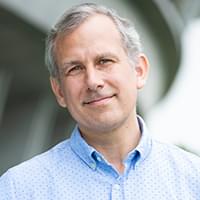- 29 July 2025
- JST 16:00 - 17:00 (GMT+09:00)
- 503 + Online
- Simultaneous interpretation
Leveraging Co-Benefits for Healthy Net-Zero Transitions in Japanese and Other G7 Cities
Before viewing
This footage is a direct recording of the meeting proceedings, and therefore it contains parts in both Japanese and English.
Please use the YouTube subtitles (CC) function as needed.
- Click the settings icon at the bottom right of the video screen.
- Select “subtitles” → “English (auto-generated)”.
- Under “English (auto-generated)”, select “auto-translate” and choose your preferred language.
Note: For example, if you select Japanese, subtitles will not be displayed for Japanese speech, and only the English portions will be shown with Japanese auto-translation.
We appreciate your understanding and cooperation.
Summary
This session focused on how climate change mitigation efforts can generate significant co-benefits for local communities, and how maximising these benefits can accelerate a city's transition to a net-zero future. A key theme was integrating climate action with health and well-being, using concrete examples from various cities to show how this approach can contribute to sustainable local development and resilience.
Kaoru Akahoshi from IGES provided an overview of the "Wellcome Project," which includes three cities from Japan, Paris and Austin. The project aims to quantify and visualise the diverse co-benefits of climate action—such as improved health and economic gains—to support evidence-based policymaking for decision-makers and the public.
Following this, representatives from each city shared insights and initiatives from their participation in the project.
- Mr. Eiji Nakamura of Hachinohe City noted that the project provided valuable lessons, particularly from European and American cities' approaches to heat countermeasures and a strong emphasis on equity for vulnerable populations. He highlighted how Hachinohe learned to view Nature-based Solutions (NbS), like urban greening, not just for aesthetic improvement but as multifunctional spaces that serve as cooling spots and enhance mental health for citizens.
- Ms. Reiko Kondo of Kawasaki City reported on the city's heat management actions, which uses heat maps, and on its public workshops designed to promote behavior change. She emphasized that quantifying and visualising co-benefits is crucial for helping citizens and other stakeholders see climate action as a personal matter.
- Mr. Takashi Kaminoyama of Niigata City addressed the city's unique challenge of rising sea surface temperatures along the Sea of Japan coast, highlighting the need to integrate both mitigation and adaptation strategies. He pointed out the co-benefits of transitioning to renewable energy and electric vehicles, which not only reduce greenhouse gas emissions but also decrease PM2.5 particulate matter. He stated that the project's analysis—which showed PM2.5 reduction could save an estimated 753 lives from premature death—provides a crucial fact for demonstrating the cost-effectiveness of policies. However, he also stressed the urgent need to establish a system for incorporating scientific findings into local government policy cycles and to maintain continuous collaboration with experts.
Next, Dr. David Eaton from the University of Texas presented an evaluation of Austin's climate policies. The analysis projected that promoting active mobility (walking and cycling) could generate about USD2 billion in health-related economic benefits by 2040, and that heat mitigation measures could reduce emergency healthcare spending by approximately USD9,000 per day during the summer. These findings clearly demonstrated the direct economic benefits of adaptation strategies. Mr. Togo Uchida of ICLEI Japan stressed that visualization tools are essential for making policy decisions and gaining public understanding of complex issues like climate change, biodiversity loss and air pollution. However, he warned that tools alone are not enough; the critical next step is to use them to build a social movement that engages diverse stakeholders. Finally, Mr. Ryan Leung from the Wellcome Trust emphasised the project's significance, stating that approaching climate change through the lens of health can help promote both mitigation and adaptation efforts.
Summary written by: AKAHOSHI Kaoru (IGES) | TADOKORO Haruno and HORIOKA Akari, Climate Youth Japan (CYJ)
Panel Discussion
AKAHOSHI Kaoru, Research Manager, Integrated Sustainability Centre / Biodiversity and Ecosystem Services, IGES

AKAHOSHI Kaoru
Research Manager, Integrated Sustainability Centre / Biodiversity and Ecosystem Services, IGES

Eric ZUSMAN
Programme Director / Director of Integrated Sustainability Centre, IGES

David J. Eaton
Professor, LBJ School of Public Affairs, The University of Texas at Austin
Executive Director, ICLEI Japan

UCHIDA Togo
Executive Director, ICLEI Japan
Born in the UK and growing up in Melbourne and Tokyo, Togo started his career at Japan Bank for International Cooperation (JBIC) working on donor coordination and aid policies. Gradually, his interest shifted to environmental policies and climate change, and spent over 8 years in Thailand and Cambodia as Japan International Cooperation Agency (JICA) Project Formulation Adviser on Climate Change and Environment. After serving one year at Institute for Global Environmental Strategies (IGES) as Programme Manager for promoting SDGs in cities in ASEAN countries, Togo has assumed the position of the Director of ICLEI Japan from July 1st, 2018.

Ryan LEUNG
Research Manager, Mitigation, Climate and Health Team, Wellcome Trust
-min.JPG)
-min.JPG)
-min.JPG)
-min.JPG)
-min.JPG)
-min.JPG)
-min.JPG)
-min.JPG)
-min.JPG)
-min.JPG)
-min.JPG)
-min.JPG)
